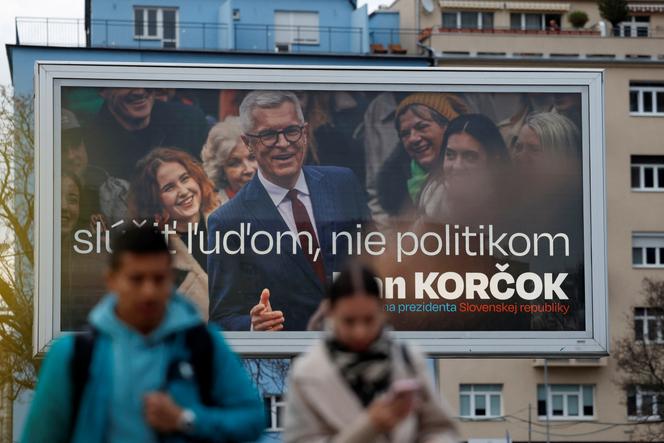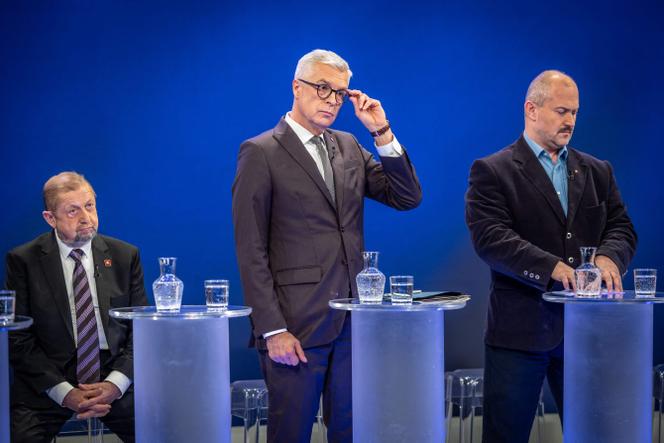


Usually, they're there to protest against their prime minister, Robert Fico, a pro-Russian populist who returned to power in Bratislava in October 2023. Yet on Tuesday, March 26, most of the several thousand people who were demonstrating at the imposing Freedom Square in the small town of Banska Bystrica, in central Slovakia, had come to support Ivan Korcok, the pro-Western candidate in the second round of the presidential election organized on Saturday, April 6 in this Central European country.
"We want to live in Europe and not in Russia! And we need a strong symbol to prove it," explained Lubica Pauculova, an architect who had come with a few friends, one of whom was proudly waving a European flag. They all saw Korcok as the last hope of preventing their country's total fall into the model set by neighboring Hungary and its nationalist Prime Minister Viktor Orban. Korcok, 60, has promised the Slovaks who have been protesting in vain all winter against a highly controversial reform of the country's judicial system and who now fear that a proposed law would take control of public broadcasting, that if he is elected, he will "do everything to ensure [their] country remains free and democratic."
From the small stage hastily erected on the square, the ex-diplomat and former foreign minister of the centrist government that was in power in Slovakia from 2020 to 2023, criticized Fico's anti-Ukraine stance, drawing a parallel with the 1968 crushing of the "Prague Spring." "I saw the Warsaw Pact occupation troops right here from my father's arms, and it has affected the rest of my life," recalled Korcok, who comes from Banska Bystrica. He argued that "Slovakia is not going in the right direction," as Fico has stopped all arms donations to Kyiv and described the large eastern neighbor country as being "under the influence of the US" and "among the most corrupt in the world."

Although the Slovakian president's role is essentially an honorific one, Korcok assured Le Monde that, "thanks to the strong mandate stemming from direct elections," he could, in a context of cohabitation with the government, "explain how important it is for Slovakia to remain part of the political West." He thus intends to continue the legacy of the current president, the liberal Zuzana Caputova, who chose not to stand for re-election, exhausted by the toxic political atmosphere that has spread in the country since the Covid-19 pandemic and the war in Ukraine.
Peter Pellegrini, the candidate nominated by Fico's majority, has campaigned unabashedly against Korcok, accusing him, for example, of "wanting to drag Slovakia into the war," even though the president has no power over the army. "The question is whether the head of state will be a warmonger like Mr. Korcok, who will unhesitatingly support everything the West tells him; or a moderate Peter Pellegrini, aware of the value of peace," Fico said.
You have 53.81% of this article left to read. The rest is for subscribers only.
